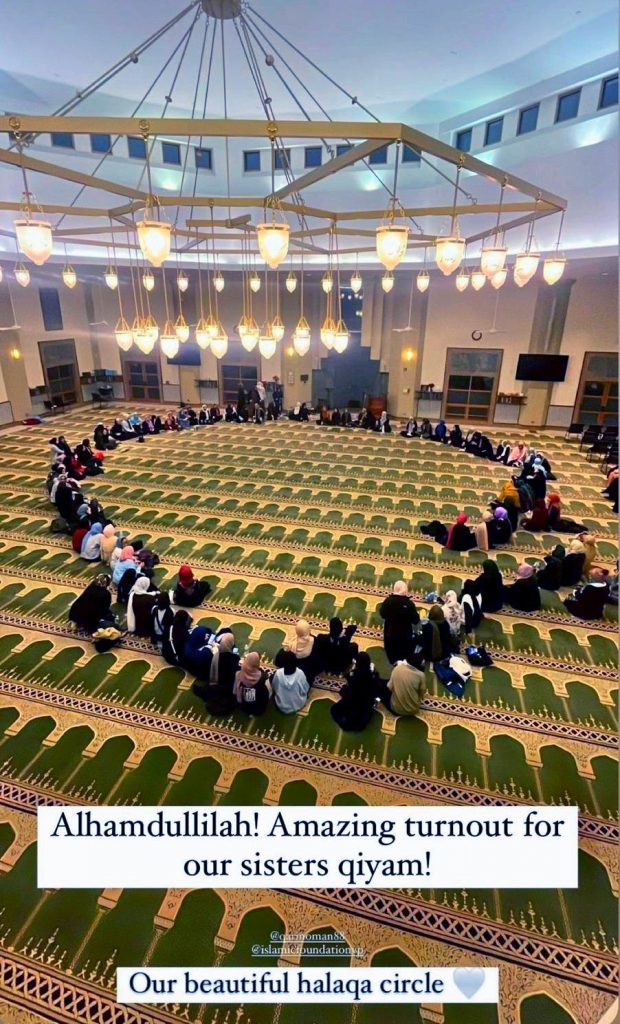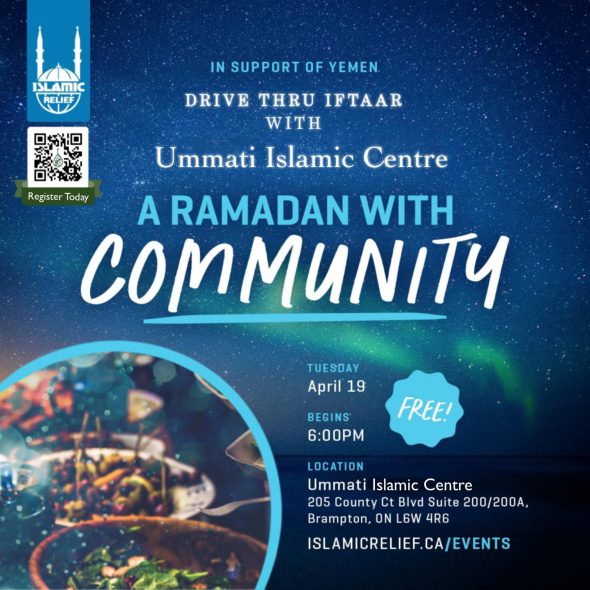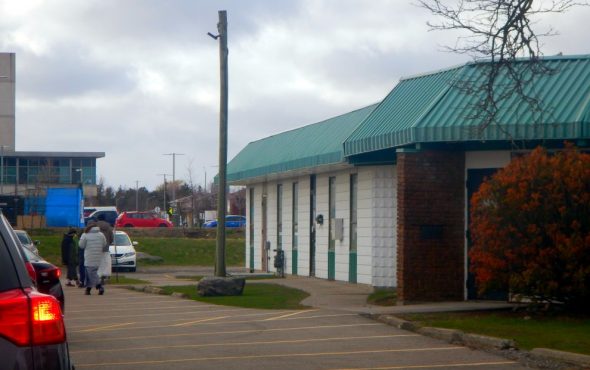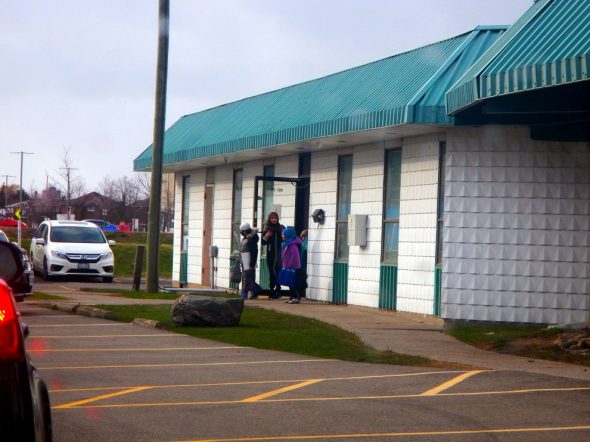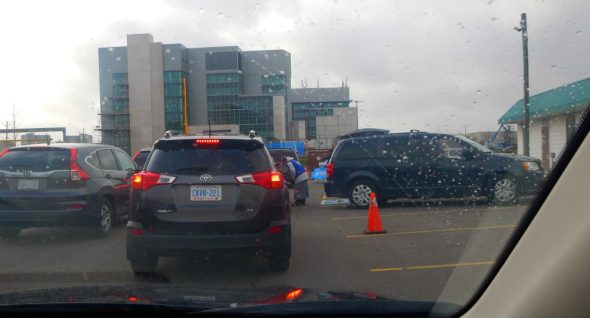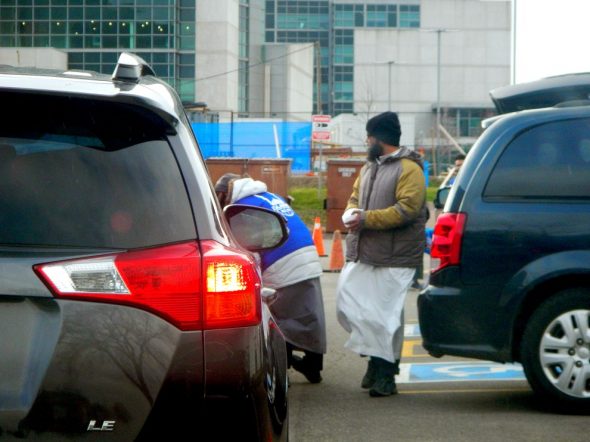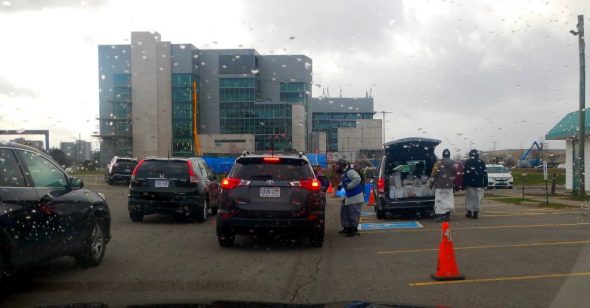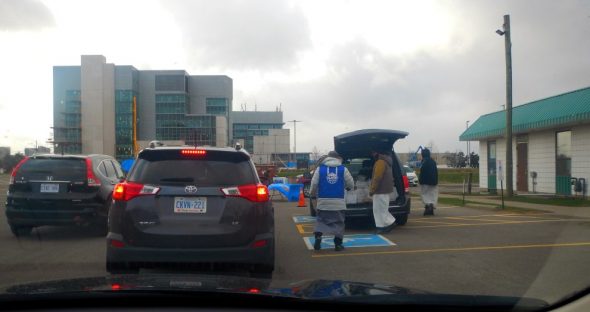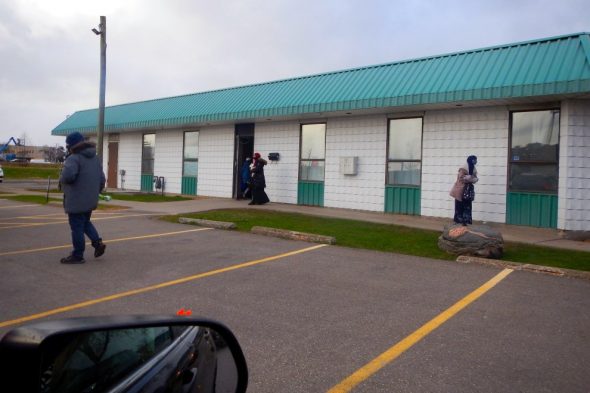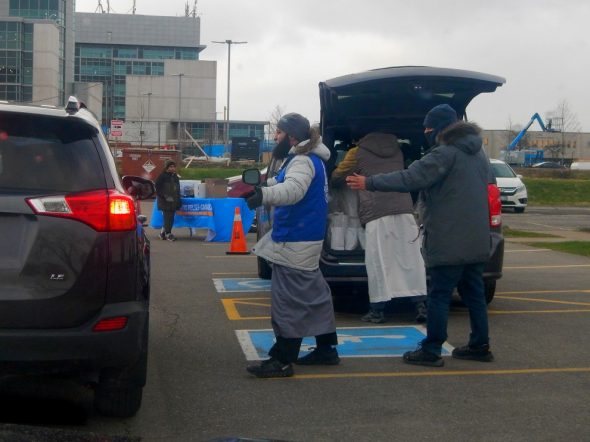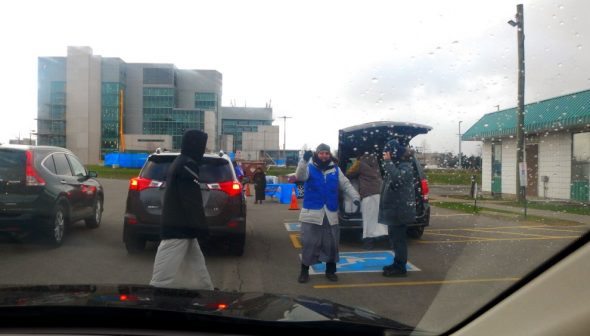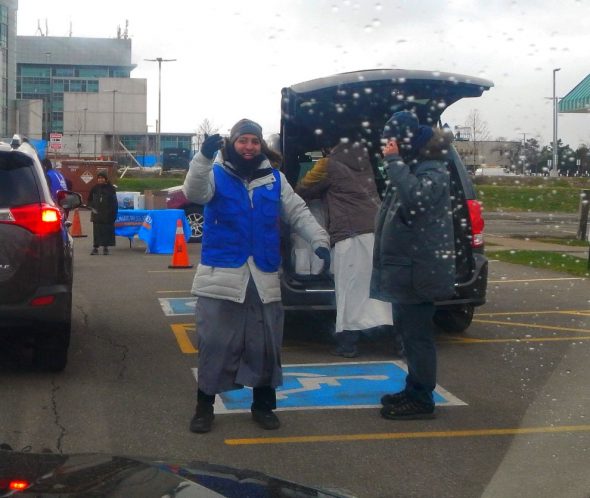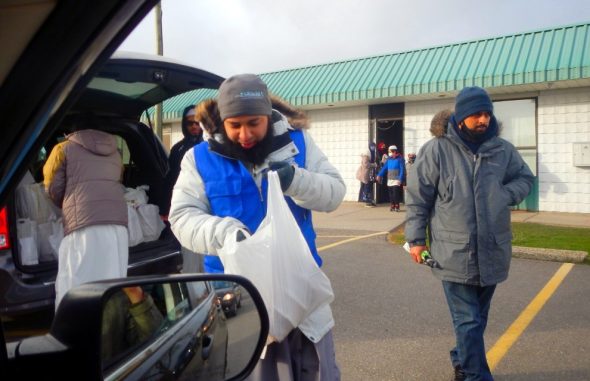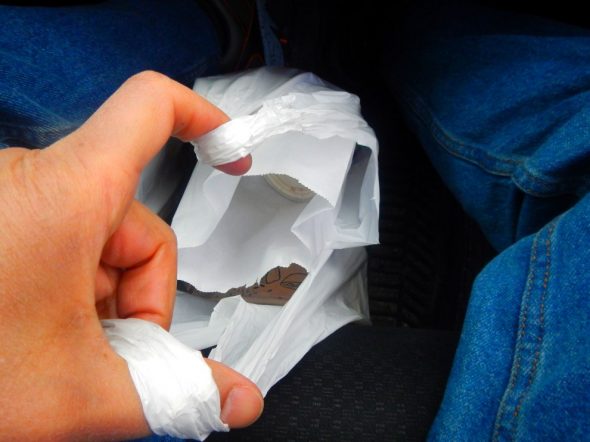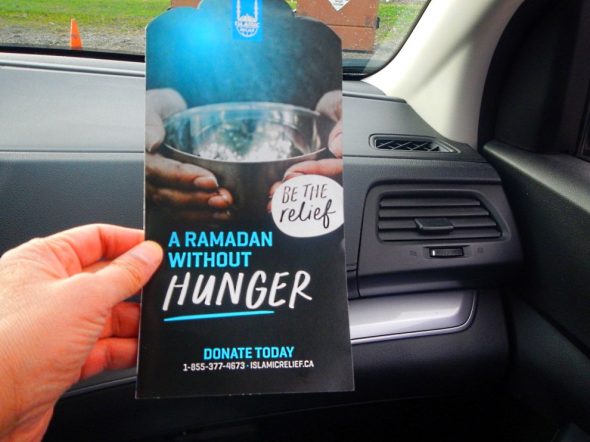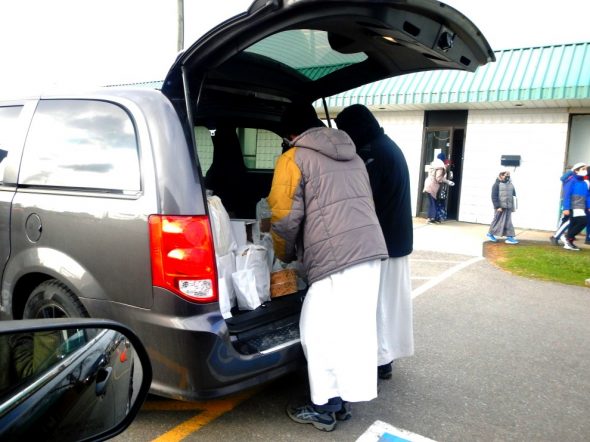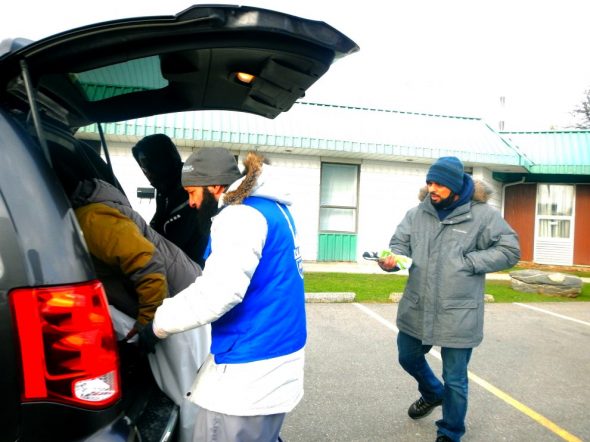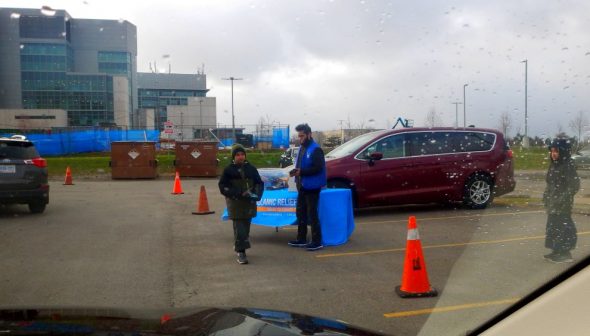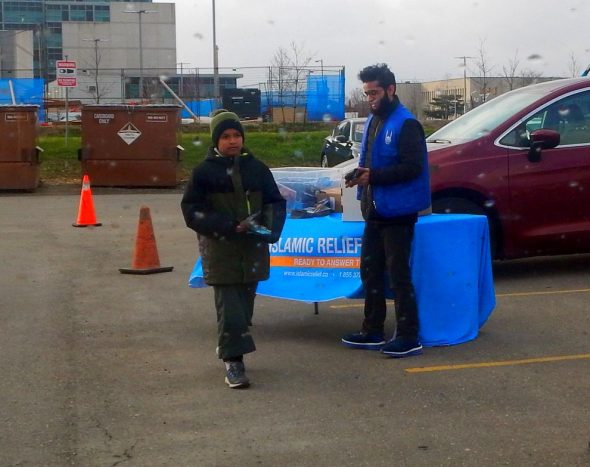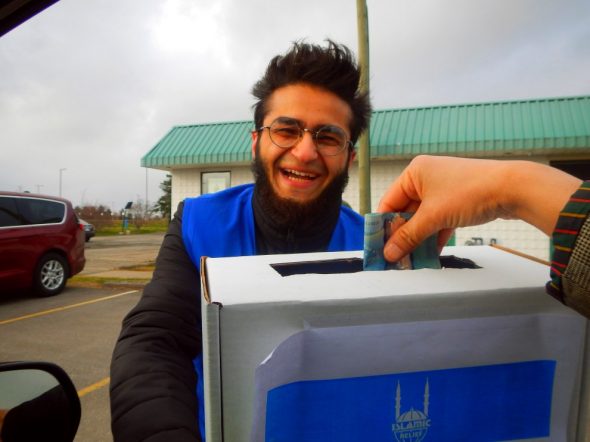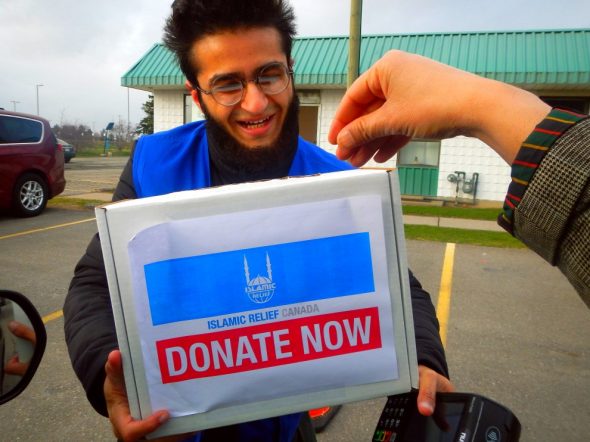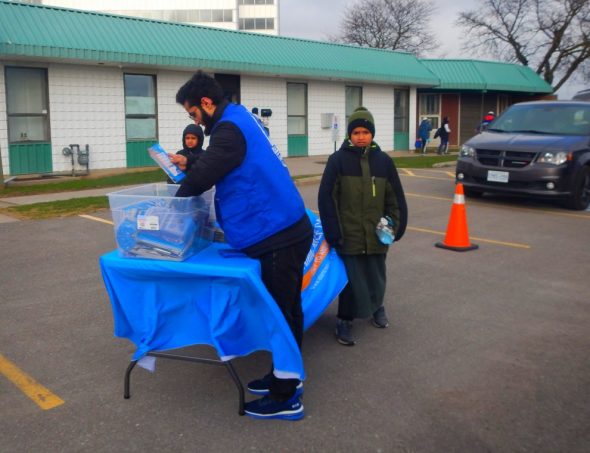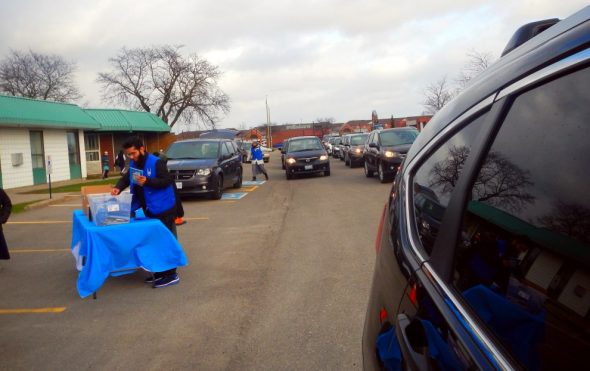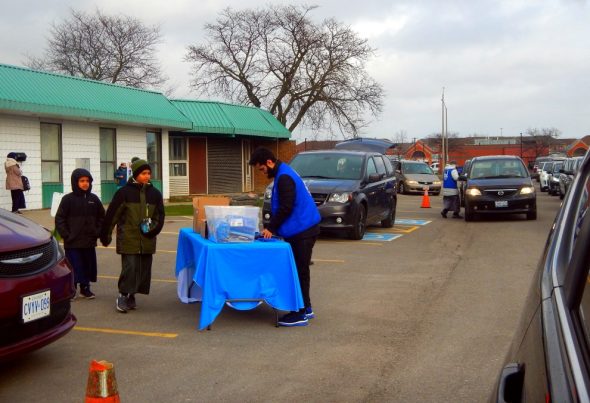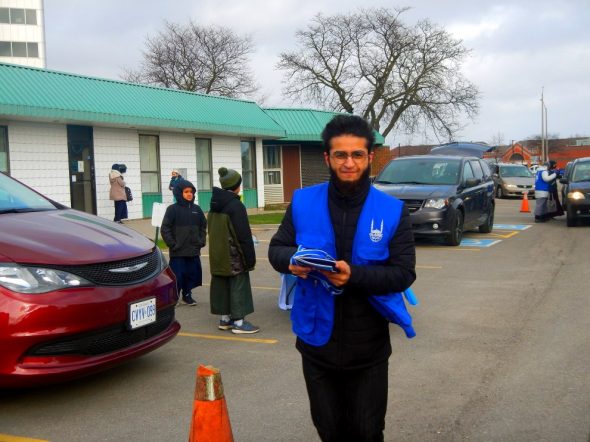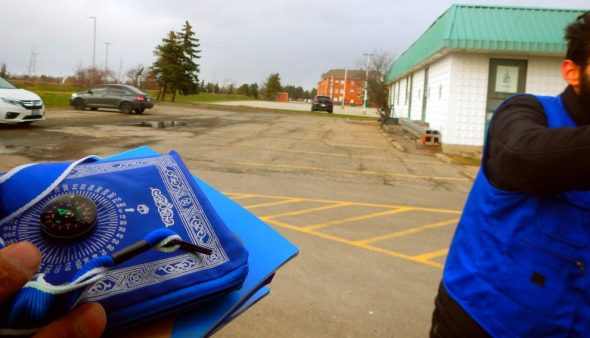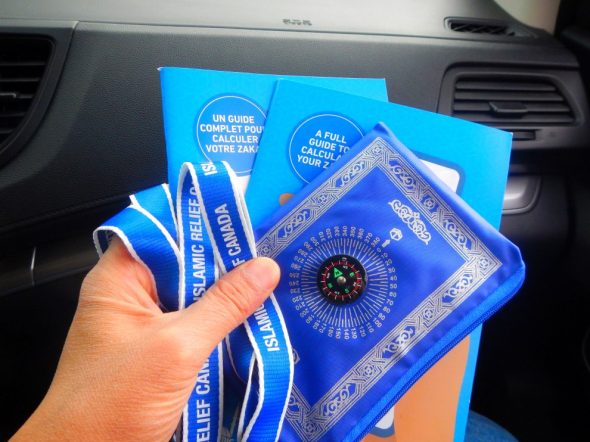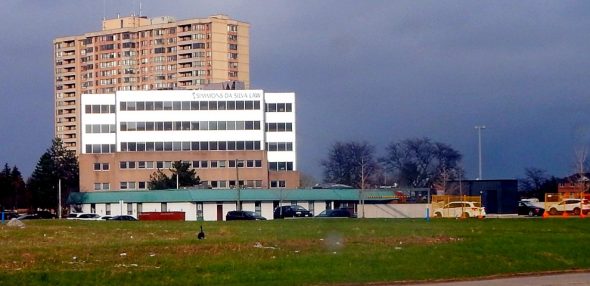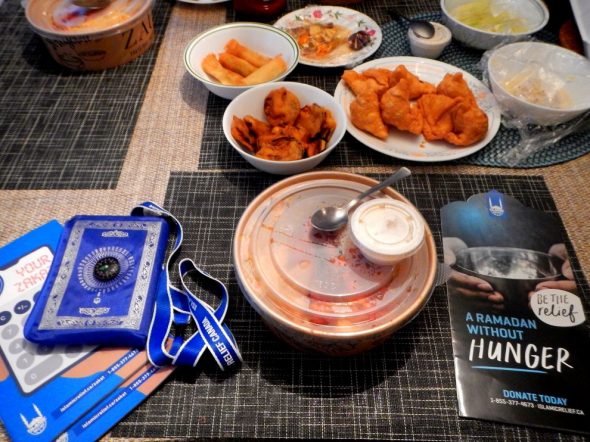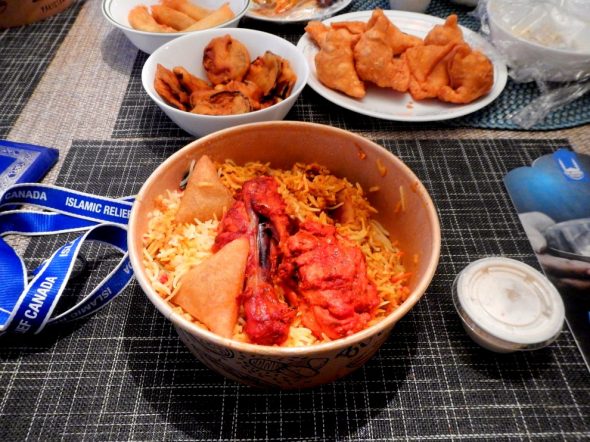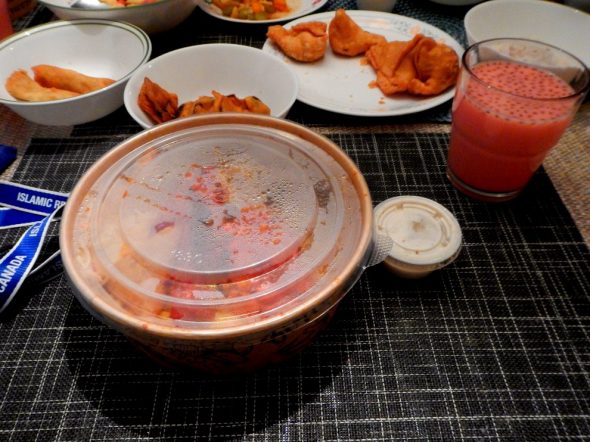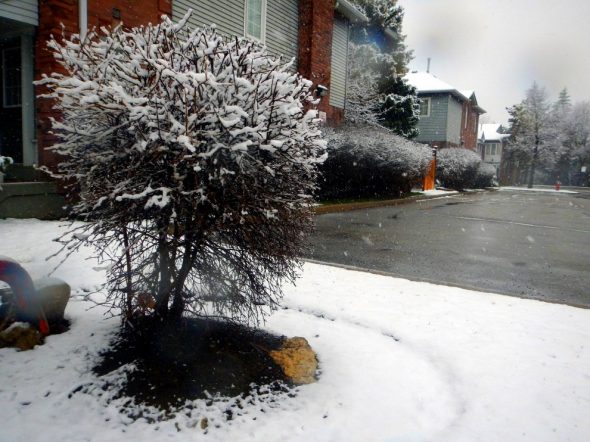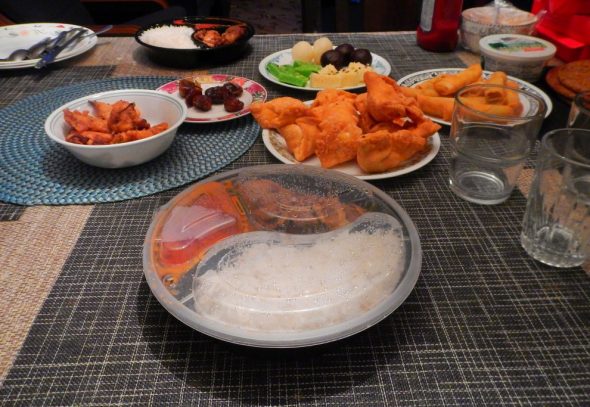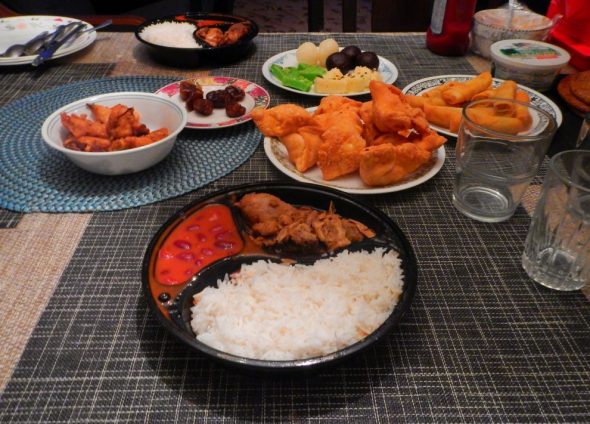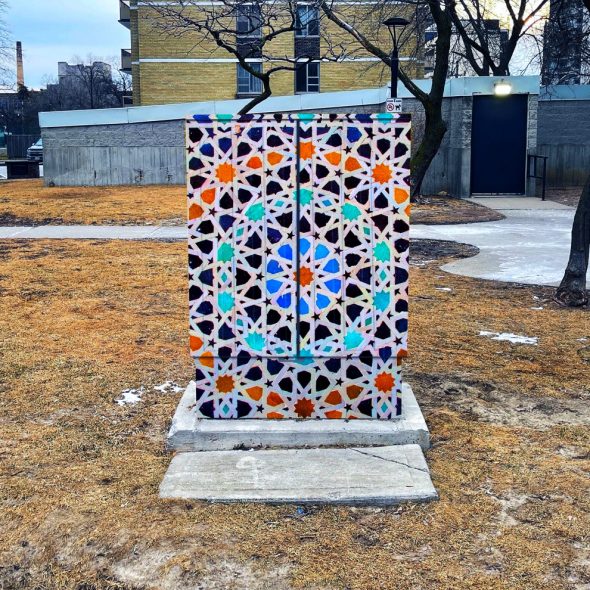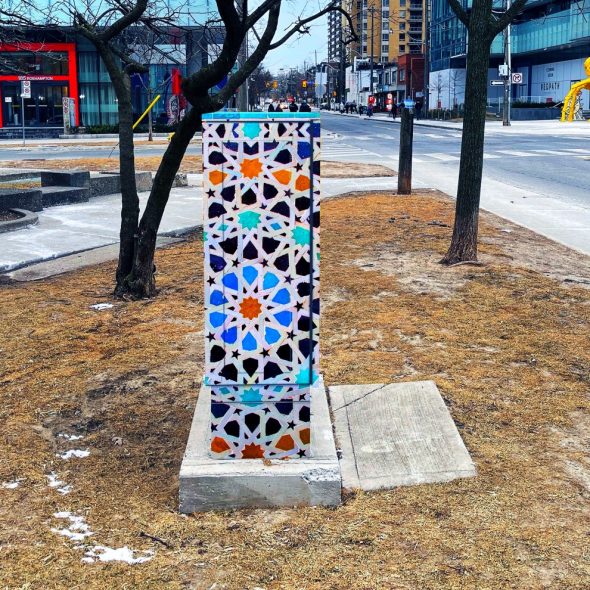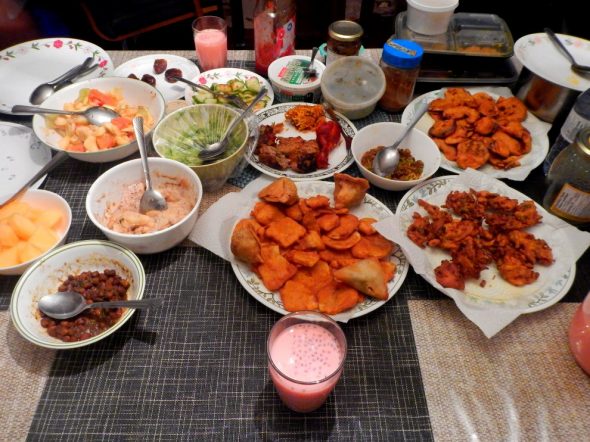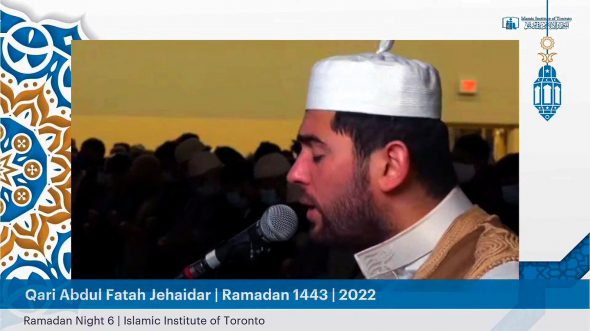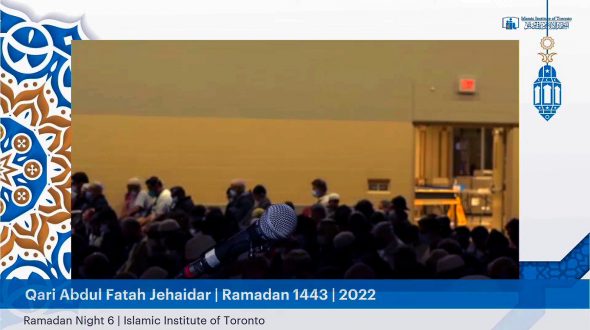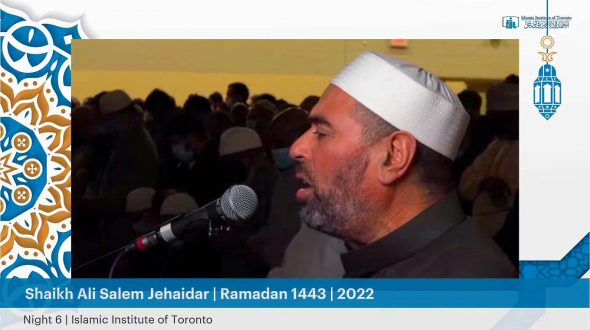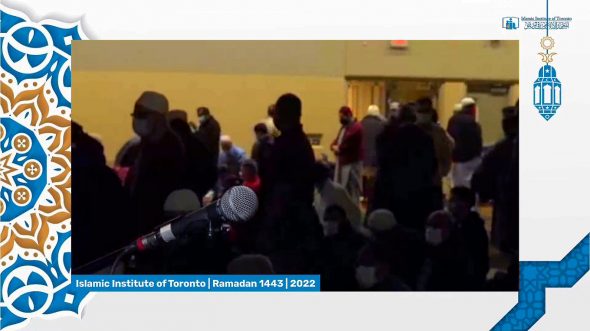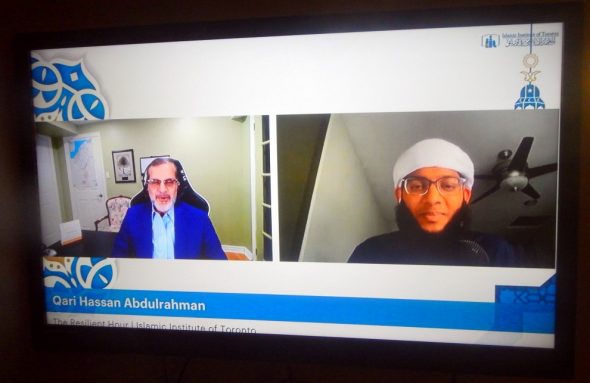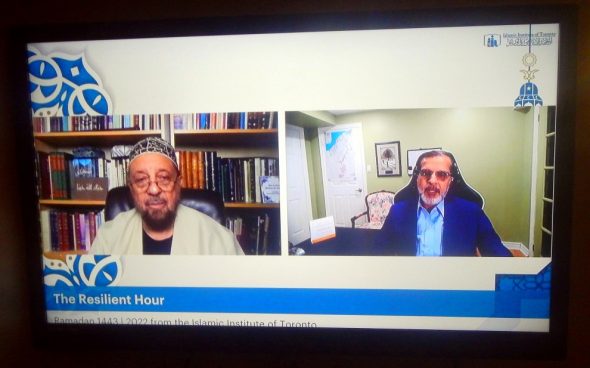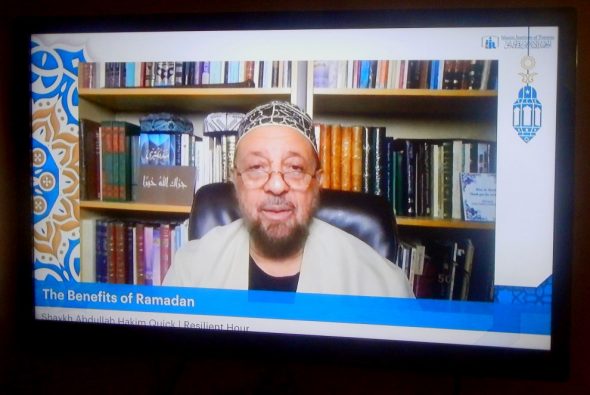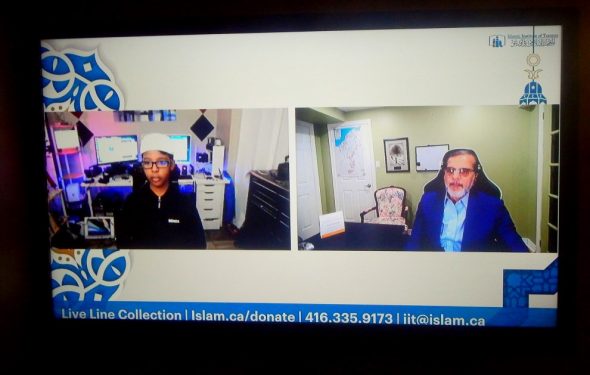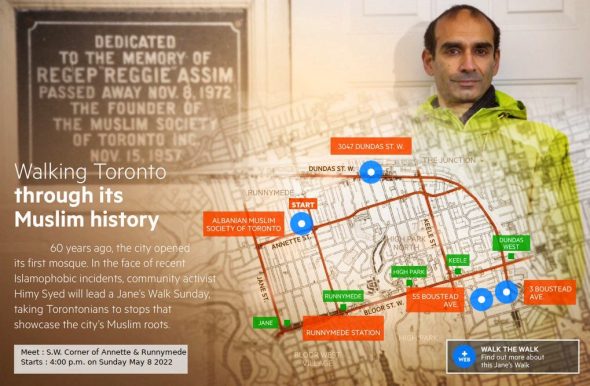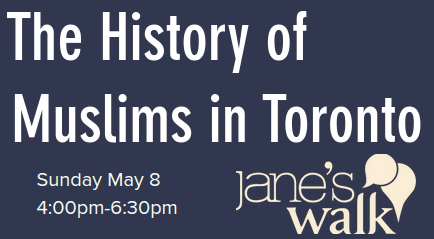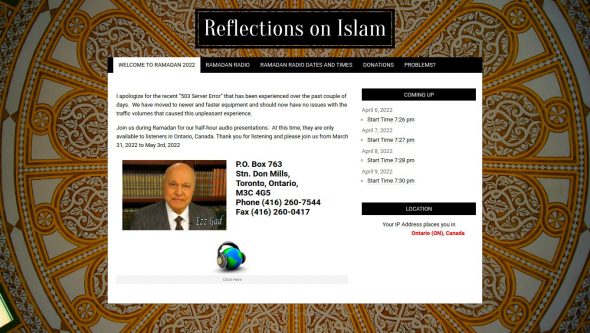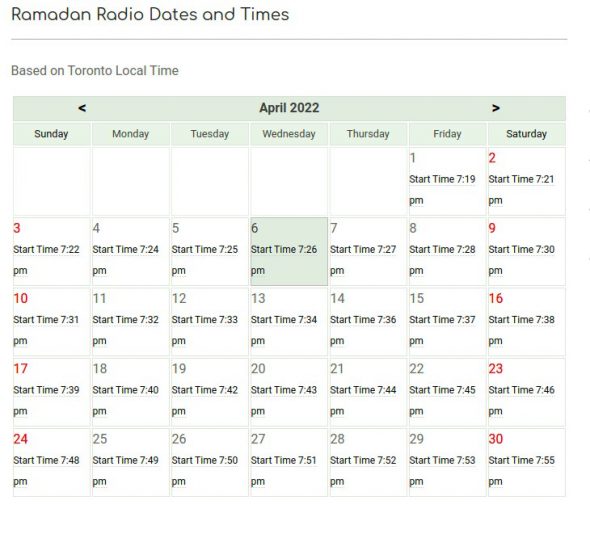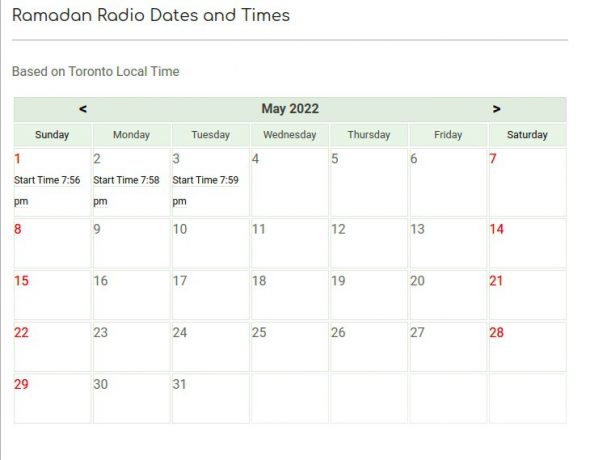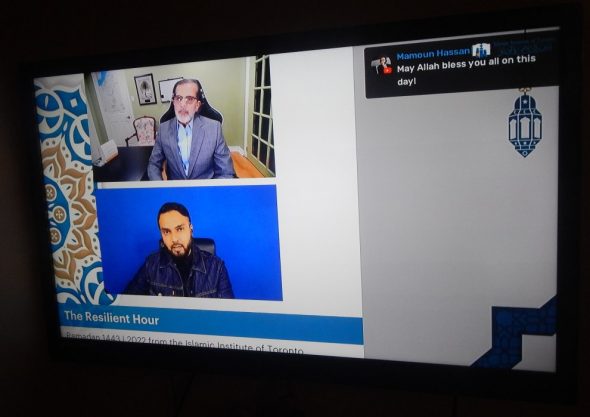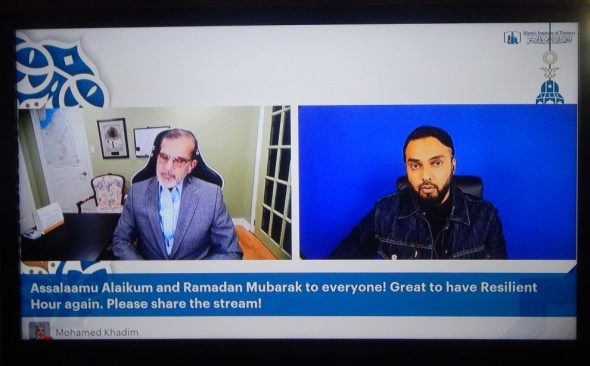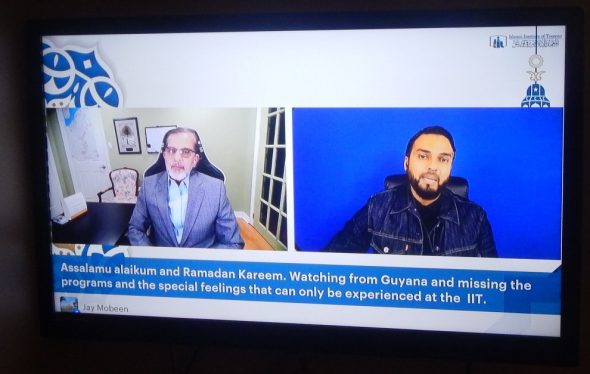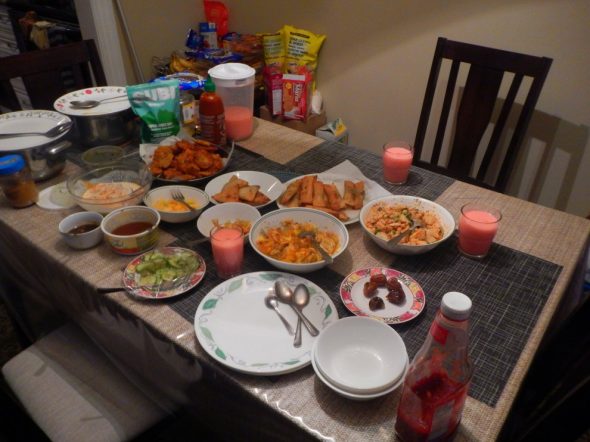““How should I break my fast?”
This is my most common patient question this week.
As 2 billion Muslims start #fasting for Ramadan I’ll answer here from my perspective as a doctor & cardiometabolic researcher.
Hopefully you’ll find takeaways to enjoy a #RamadanMubarak
A thread…
First and foremost a disclaimer that I’ll be answering from a scientific standpoint, not as a religious expert.
You may see, though, that much of the medical reasons here coincide perfectly with the sunna or tradition of Prophet Muhammad PBUH (not surprisingly).
Now to answer the question.
The best thing to break your fast with are dates.
Dates are full of key ingredients that are very helpful after a long fast.
First, they’re high in fructose & glucose which helps rapidly restore low blood sugar.
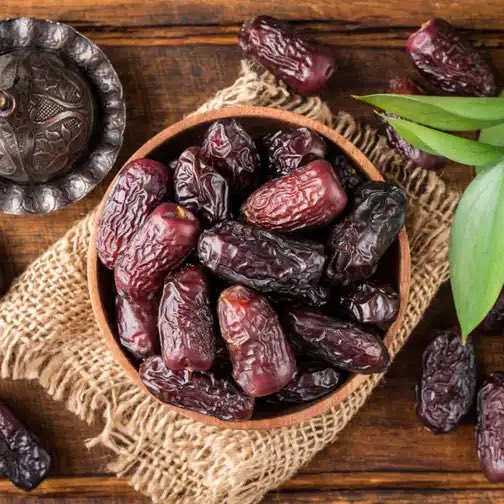
There are several other essential vitamins & minerals such as potassium, which is particularly important here…
When fasting, potassium excretion increases early on.
In fact, when we clinically prescribe intermittent fasting or protein-sparing modified fasts for weight loss we closely monitor electrolytes, and sometimes have to give potassium chloride supplements.
Being able to naturally replenish potassium along with fruit sugar is very helpful.
Dates are also chock full of other vitamins & minerals including magnesium, B6, fiber (which helps you feel full), and antioxidants.
The high caloric density of these small fruits is also convenient- they give nutritional value without occupying much room in your shrunken stomach.
So from a scientific standpoint, it makes perfect sense why this was the Prophet PBUH’s preferred food to break fasts with.
If you don’t have dates, consider other fruits with similar benefits such as apples, figs, or pears.
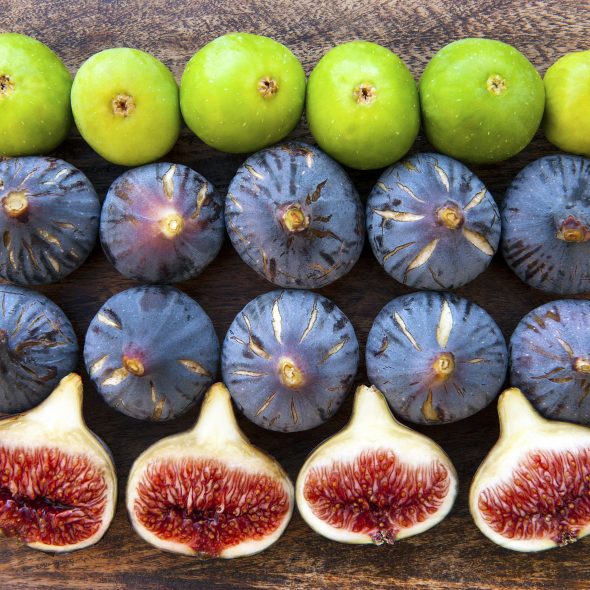
As for what to drink, the best is WATER.
Not tamarind drink, not Tang mix, not soda.
All these spike sugar WITHOUT the benefits above.
In fact, they rapidly expand the stomach, cause bloating, affect the rest of the meal afterwards, and don’t have additional nutritional value.

So the best is just a few sips of water.
This was also, in fact, the preference of the Prophet PBUH when he didn’t have dates.
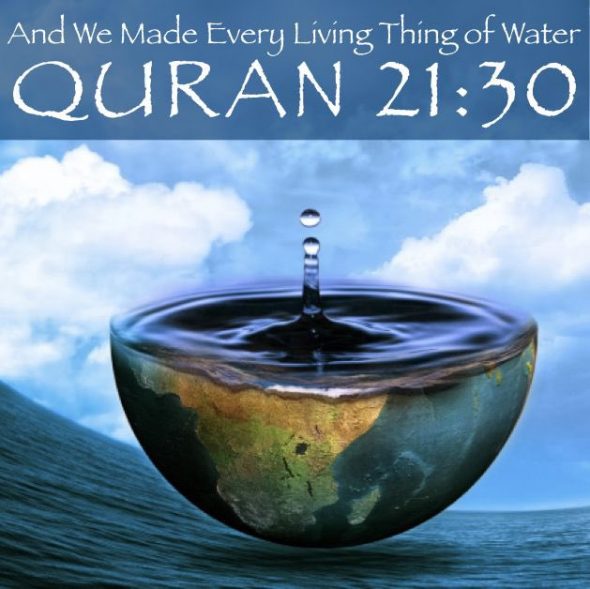
“What about after that?”
Take a break.
There are several reasons for this…
1) After a long fast, your stomach is smaller and less able to accept a full meal quickly.
2) For digestion: Once you eat a few dates, that sparks a whole digestive cascade of events.
Your stomach starts producing gastrin which stimulates secretion of digestive juices.
As the dates get digested enterogastrone is secreted and helps regulate blood flow.
This is important preparation for the remainder of the meal that follows.
If instead you eat a massive meal all at once, too much blood gets shunted to your gut & away from your brain.
Food coma!
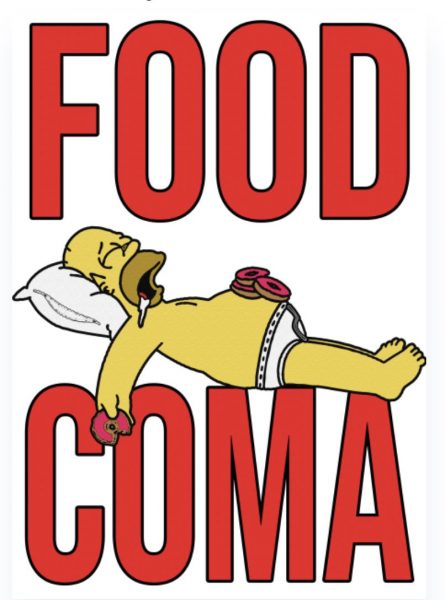
3) For satiety: the initial pause after breaking your fast helps modulate your “hunger hormones.”
Ghrelin is a hormone also released by your stomach when you’re hungry.
It’s highest right before breaking your fast and goes down when you eat.
Once Ghrelin is down it signals to your brain that you’re full.
This usually takes 45-60 minutes so the added delay after breaking your fast makes it less likely to overeat beyond your stomach’s capacity – a phenomenon way too common in Ramadan.
So if you’re fasting, following this process of taking a brief pause, AND paying attention to food quality then you shouldn’t gain weight during Ramadan.
If you find yourself GAINING despite 14 hours of fasting and with everything else being equal then something’s wrong.
In that case, you must explore what you’re eating and the way you’re eating.
So what did the Prophet PBUH do?
He used this time to pray Maghreb, the sunset prayer.
This prayer can be brief.
No need to extend it.
The time for longer prayers is after Isha (Taraweeh/Qiyam prayers).
And now you’re ready for the rest of your meal!
I urge you to again pay attention to quantity and quality here.
In terms of quantity, the Prophet PBUH reminds us to not be gluttonous 👇🏼
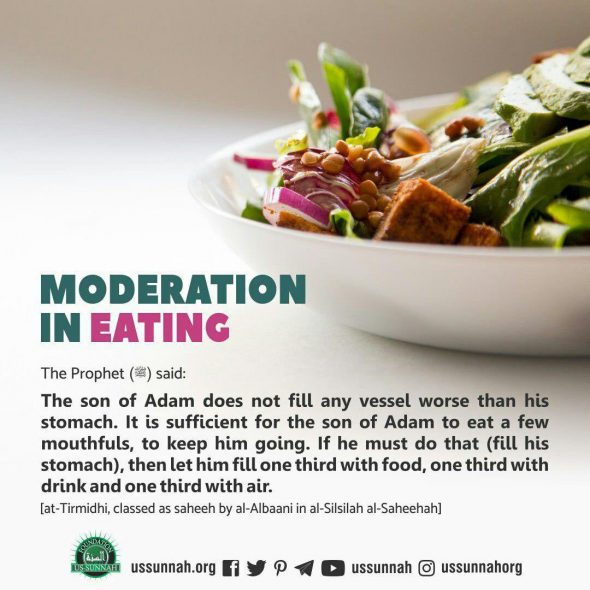
As for quality, a common mistake is having high fat meals at the expense of vegetables.
You do need some fat, but too much will cause spikes in triglycerides, increase cholesterol, and make you miss out on other vital macro and micronutrients.
You need enough protein for cellular functions and to ensure you don’t break down muscle during your fast (catabolism).
You need carbs for energy and virtually every physiologic process in your body.
You need vitamins & minerals which largely come from fruits & vegetables
There are a million opinions and diets out there and no single correct path, but whatever you choose just make sure to have balance and moderation.
I like the concept of thirds: Split 1/3 of plate for vegetables (cooked or salad), 1/3 for protein (meat or beans), 1/3 for carbs.
If you ensure at least a third in vegetables it becomes harder to miss out on important nutrients and you end up having less space for fatty/processed foods.
Finally, an often neglected but vital part of the discussion is suhoor (dawn meal).
This should NOT be skipped.
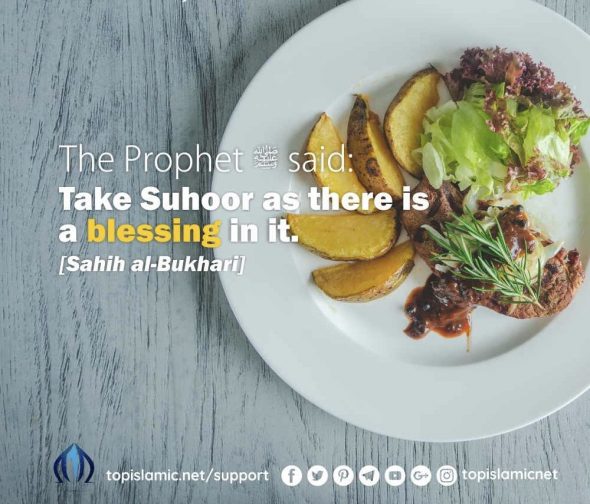
In terms of timing, suhoor should be delayed for two reasons.
1) The closer it is to dawn, the shorter your fast will be.
2) This extends the time from your last large nighttime meal which gives you time to digest and regulate hunger cycles.
For suhoor, focus on foods that give you satiety so you feel full for longer, without spiking your sugar, and without causing you to feel thirsty.
A great choice is Greek yogurt.
Hummus or beans (eg Fava) are also good but you need to mind the salt so you don’t feel thirsty.
And of course be sure to hydrate adequately, especially if you’ll be outdoors or perspiring during the day.
I hope you found this helpful!
I wish you all a healthy month ahead full of forgivenesses, gratitude, and blessings.
I pray for relief and peace to all those struggling through difficult times around the world.
#RamadanKareem to all.”
— By Haitham Ahmed, MD, MPH, Chair of Cardiology at AdvantageCare Physicians, New York, NY
